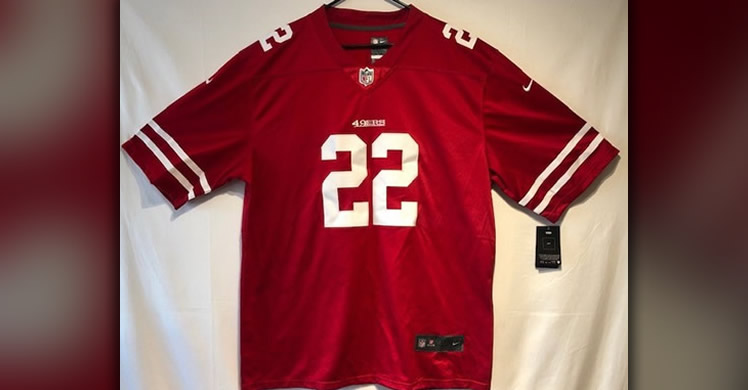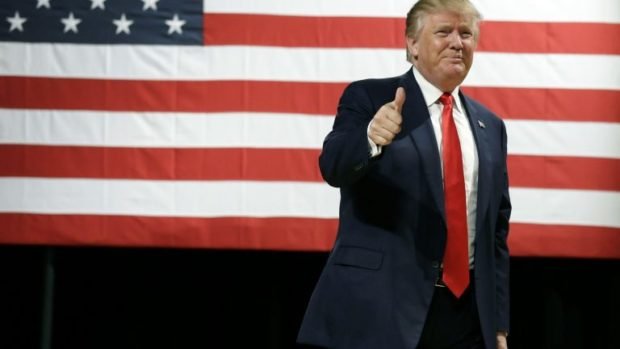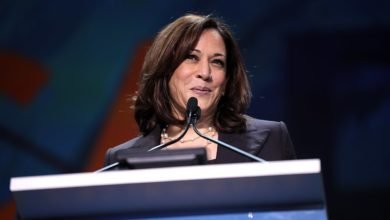Buyer Beware: Super Bowl team gear could be counterfeit

SAN FRANCISCO – As the excitement of football builds in the Bay Area, sports fans around the city, state and nation, seek out team adorned gear to show support as the Super Bowl nears. Another group paying close attention to sports-related items, is the men and women of U.S. Immigration and Customs Enforcement’s Homeland Security Investigations (HSI), San Francisco, and U.S. Customs and Border Protection (CBP).
Intellectual property rights laws are being actively enforced by HSI agents. Intellectual property enforcement is a key effort in protecting the health and safety of American consumers; protecting the economy and legitimate business; and tackling domestic and international criminal organizations.
“When consumers purchase counterfeit items, such as jerseys, t-shirts and hats, they feed unknown criminal enterprise(s),” said Tatum King, special agent in charge, HSI, San Francisco. “Counterfeit items also deprive United States companies and workers of income and has a negative impact on legitimate economic vitality.”
Last year, collaborative enforcement efforts led by HSI and CBP resulted in the seizure of nearly 285,000 counterfeit sports-related items worth an estimated $24.2 million.
“International counterfeiting and copyright infringement can have far-reaching effects,” said Brian Humphrey, CBP’s director of field operations in San Francisco. “Stopping these goods at the first point of entry into the U.S. before they can be resold or distributed helps secure legitimate trade and protect American consumers.”
There are identifiable signs of counterfeit sports merchandise that consumers should look for when making purchases. According to agents, purchases should be made from official branded shops or department stores. Also, all official National Football League (NFL) merchandise will have an NFL hologram on the tag or sticker. Agents also warn buyers to stay away from purchasing clothing with torn tags in the collar. Finally, if the price seems unreasonably low for a particular item, the item could be counterfeit.
“Fake jerseys and hats are just the tip of the iceberg,” said King. “Counterfeiting is a global problem and requires a global response.”
Counterfeit goods are not only identified as sports gear products. Recent HSI investigations uncovered criminal groups trafficking in counterfeit medication, counterfeit automotive parts, and counterfeit micro-components destined for use in military platforms.
For fiscal year (FY) 2019, HSI nationally seized counterfeit goods totaling an estimated manufacturer’s suggested retail price (MSRP) of more than $560 million. The HSI San Francisco region was responsible for approximately $2 million of the aforementioned $560 million figure.
In addition, supported by the HSI-led National Intellectual Property Rights Coordination Center (IPR Center), HSI’s intellectual property and trade enforcement efforts in FY 2019 led to 362 arrests, with 303 indictments and 231 convictions.
The IPR Center stands at the forefront of America’s response to intellectual property theft and its enforcement of international trade laws. Its efforts have a direct impact on the nation’s health, safety and economy.
The IPR Center brings together 25 key federal and international agencies in a task force setting using a three-pronged approach to combat intellectual property and commercial fraud crimes: interdiction, investigation, and outreach. This enables the IPR Center to leverage the resources, skills and authorities of each partner.
The IPR Center is led by an HSI director, along with deputy directors from HSI, FBI and CBP.
Content created by Conservative Daily News is available for re-publication without charge under the Creative Commons license. Visit our syndication page for details and requirements.




